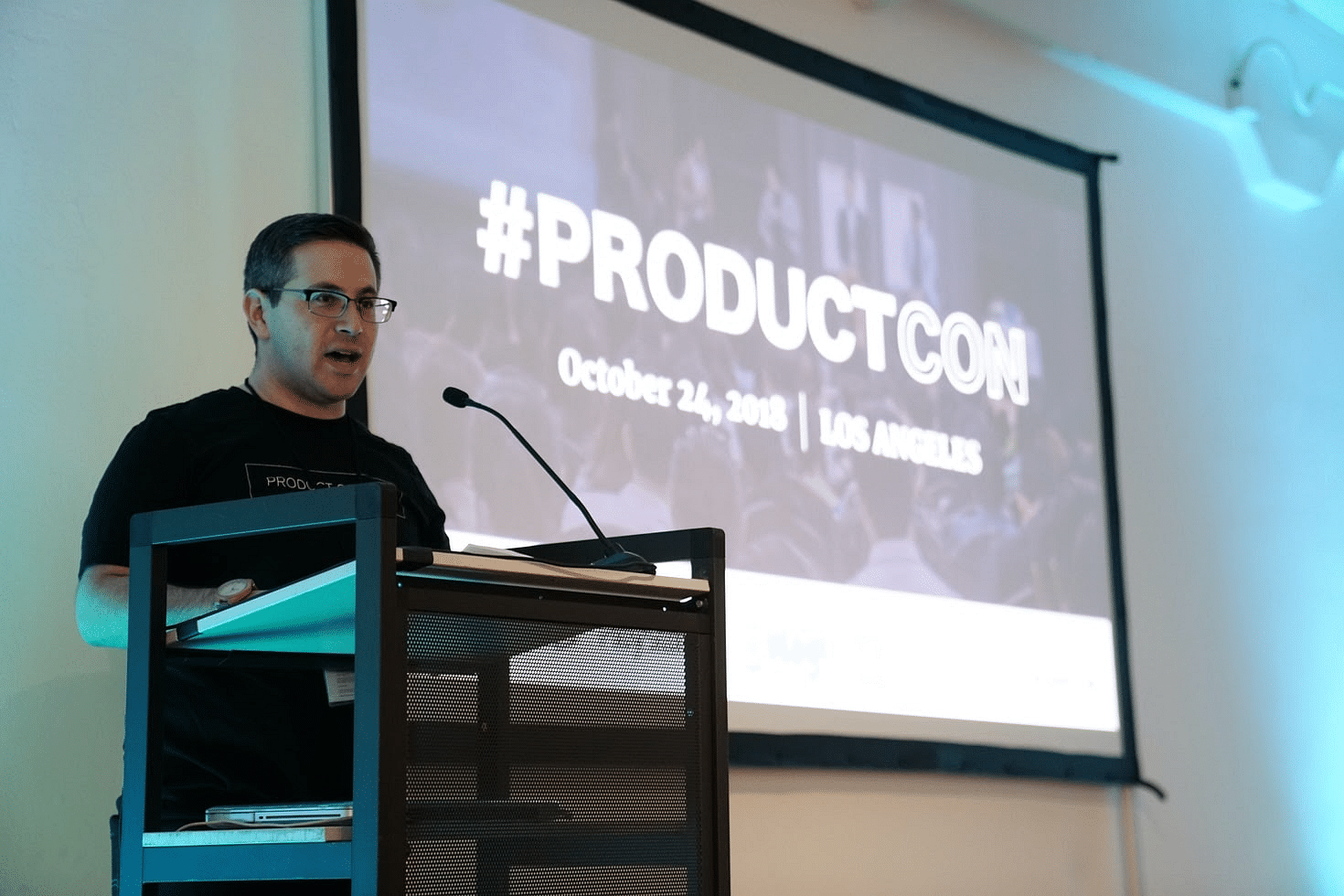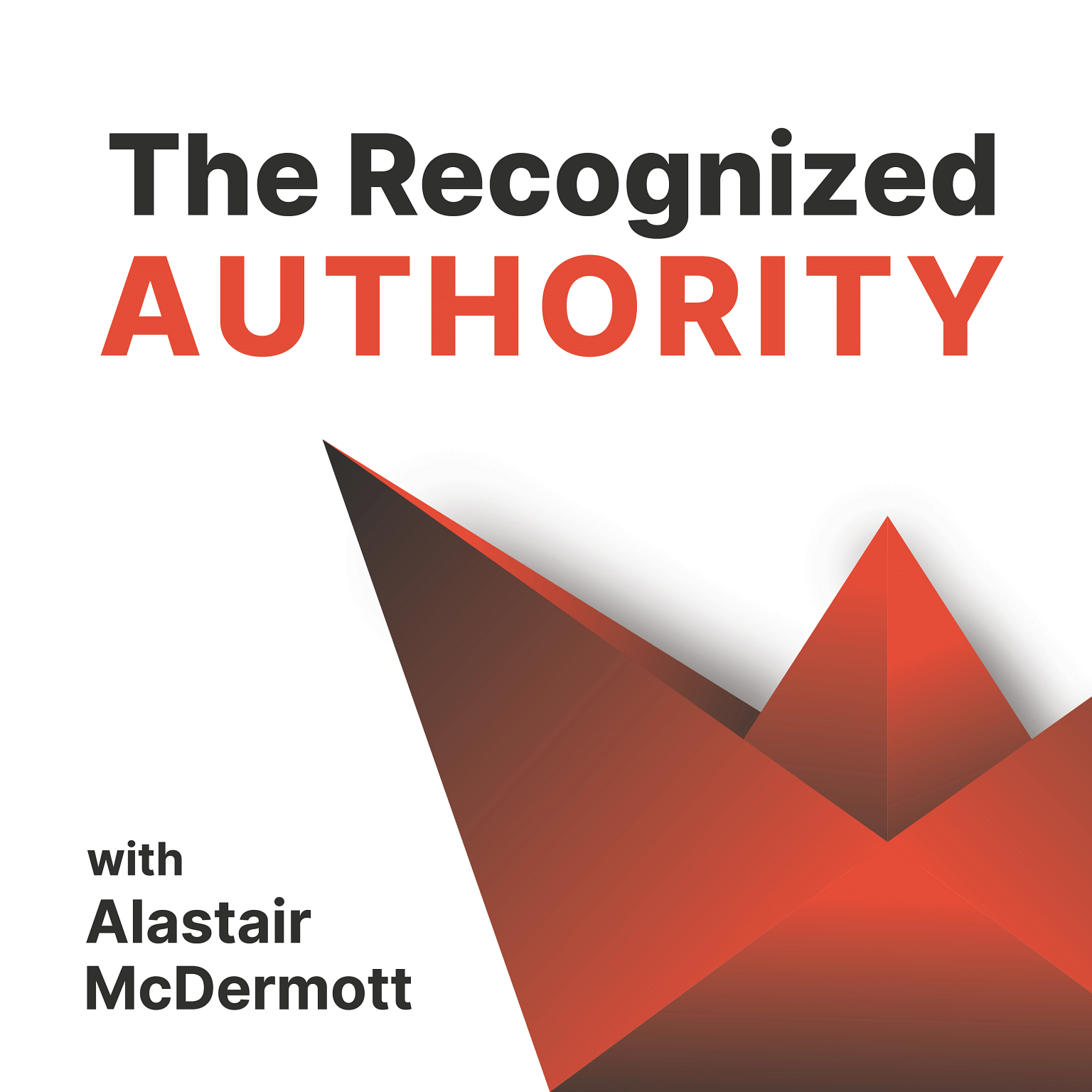
When getting pigeonholed becomes advantageous: Niching down and making yourself a visible authority in your field
By Jim James, Founder EASTWEST PR and Host of The UnNoticed Entrepreneur.
Alastair McDermott helps invisible experts become visible. Talking on the recent episode of The UnNoticed Entrepreneur podcast from Galway, Ireland, he said that this problem is dear to his heart because it’s something that he encountered himself.
Image from LinkedIn
Removing Your Invisibility Cloak
He realised that he had this problem of wanting to build his authority and be more well-known yet he felt like he’s wearing an invisibility cloak, like the thing from Harry Potter. And he needed to remove that cloak.
He then heard this piece of advice: Put yourself out there. However, this is not easy; there’s a process that you have to go through. He started figuring that out and what he found was that the really important part of the phrase “recgonised authority in your field” is the last part — “in your field.” You have to niche down, you have to specialise.
Talking to smart consultants, experts, and generalists, he realised that this is the really difficult part. These people are good at doing lots of different types of problem-solving. But they find it hard to actually niche down.
Picking Your Field
As the old issue goes, the riches are in the niches. However, the anxiety is that you’re leaving money on the table — and that it’s not possible to get enough money if you’re from an individual niche.
According to Alastair, you can be an authority in one field and sustain your business if you pick a field that’s big enough. There has to be enough business in that niche. You can niche down too much. Basically, you’re a big fish in a small pond.
Image from Unsplash
He pointed out that this is how the world works today. With Google search and things like that, only the top people in a particular field are going to come up at the top of the search results. These top people are going to get the most recommendations. There’s certainly an advantage in being at the top of the pile. If you’re not on top, then go find a smaller pile and be at the top of that.
And this is not just about Google search. It applies to the whole concept of being recognised as an authority, of becoming known as the go-to person for that one problem for that one area.
On Being Pigeonholed in One Area
Alastair mentioned that “pigeonhole” is one of those trigger words for him. People use it in such a negative way. When he was listening to Blair Enns talking to David C. Baker, his co-host on the 2Bobs podcast, he was saying that pigeonholes are stuffed with cash. So why are people always coming out of pigeonholes?
For Alastair, pigeonhole is not a negative term or concept.
While people who are multi-talented and smart don’t like the idea of being constrained in some way, the reality is that if you niche down, it will actually open up a lot of opportunities for you. The problem area is much deeper than what you’ll initially realise. There’s a lot more there that will fascinate you than you think there will be if you only have a surface visit to the problem area. When you go deep into any kind of specialisation, you’ll realise that it’s actually fascinating and there’s a lot more there for you.
Factors Affecting Niching Down
Niching down applies to both companies and individuals. It ultimately depends on the size, the scale, and a few different factors.
For instance, Alastair mentioned that when you’re right at the very start of your career, you can’t niche down immediately because you need to first build a certain breadth of experience. This will help you make a good specialisation decision later on. You need broad experience to be able to say, “I do like this and I don’t like that. I like this kind of people and I don’t like working with those.”
On the other end of the spectrum, take, for example, Seth Godin or Mark Schaefer. These are industry experts who have become very broad and big to the point that they were able to build such a massive audience that they don’t need to be niched down. The same applies to companies: When they reach a certain size, they don’t need to niche down.
Image from Unsplash
But for a lot of people, particularly solo consultants, small businesses and firms, specialising can offer a tremendous advantage. When you’re competing with somebody who has general experience, having specialist experience is advantageous. It doesn't warrant a comparison even, just like when you’re comparing apples to oranges. It’s not the same, and it just makes you stand out.
Letting People Know You’re in a Particular Pigeonhole
Alastair reiterated that you need to get some broad experience first so that you can actually end up in a position where you’ll have enough expertise to be an expert. Because you have to be an expert to become an authority.
At that point, you have to choose a journey of authority — you have to pick a field. It’s not possible to be an authority without having a specific area to be an authority in.
There are people who seem to be generalists but in reality, they’re not generalists but specialists in some particular areas. For example, Gary Vaynerchuk answers questions in a very authoritative manner on a wide range of topics. But when you dig into it, he does have huge and deep expertise in wine, video production, and social media.
Going back to developing expertise in certain areas, he then pointed out that after having a broad experience and developing some expertise, you have to get to a point where you want to have more impact, command higher fees, work with better and bigger clients, and help more people.
For some people, the route forward can be different ways. Other people build out their referral network and do a lot of networking. When Alastair did some research and surveyed over a thousand consultants, he found that referrals were the number one source of business for about 95 to 99% of consulting businesses and business-to-business firms. This is not just true for small consulting firms.
However, at a certain point, networking won’t scale anymore. Today, in particular, when it’s hard to run and attend networking events, you want to have something else. This is when he talked about another route forward, which he prefers because he’s more of an introvert: content creation. He likes to write, record YouTube videos and podcasts, and do other related things.
This kind of route to authority gives you the ability to do inbound marketing. Inbound marketing is content marketing, authority marketing, or education marketing — because you’re educating your clients about their problem and your solution to that problem; you’re building your authority with that.
Not an Easy Task
Sounding and looking like an authority is not an easy task.
Image from Unsplash
Alastair shared that when he looks back on his older videos on YouTube (he has about 15 years of YouTube video history), he finds some of them cringe-worthy. It’s so bad that he doesn’t actually recognise himself (Check his video called Putting in the Reps).
For him, it’s really about getting some experience. You don’t learn how to swim by reading books about swimming — you actually have to get to the pool.
Also, part of that route to authority is demonstrating your expertise. This means publishing, talking, speaking, and writing in public. You have to expose your ideas and your thoughts to the public. And you have to do it through different modes and methods. There’s podcasting, like what he and I are doing. He also starting to get more into YouTube and video. Some people prefer to write blog posts. Seth Godin, for example, has been writing a blog post every day for decades.
There are lots of different ways but you do have to start. If you look back on anybody’s beginning, you’ll find many things that don’t look great. However, they still kept doing it. If you look at some of Gary Veynerchuck’s old videos from his first two years making Wine Library TV, they were amateur-looking. Today, he’s worth $200 million.
It’s not easy but it’s simple. You have to start somewhere — pick a niche and just start.
What Alastair suggested is for you to do some deep research into a niche or specialisation, dig more into the problem, talk to clients in that area, start to look for patterns, and start to learn more about that problem than anybody else. Because this is the thing that the specialisation will give you: It will give you a deeper understanding than other people have.
2Bobs podcast co-host David C. Baker wrote a book called The Business Expertise. Part of the concept that he’s talking about is a test called “Drop and Give Me 20.” It means that if he’s sitting beside somebody on a plane and they’re true experts in their niche, they should be able to tell him 20 things that would surprise him about his niche that he wouldn’t have known by being outside that field.
Alastair admitted that he’s nowhere near 20. However, it can be used as a good way of benchmarking your progress about the things that you’re learning about your specialisation — things that other people who are generalists might not know about.
How Will You Sound Authoritative?
One of Alastair’s LinkedIn posts talked about sounding good. In the past, I’ve also had voice coach Jimmy Cannon on the show and he talked about voice, projection, and proper breathing. The question is, how will you really make yourself sound authoritative?
Alistrair recalled hearing about Prof. Norbert Schwartz from the University of Southern California. He came across a study that the professor had done with some colleagues from Australia.
Image from Unsplash
In the research, they took some high-quality audio of scientists and researchers speaking and downgraded the original files to several levels. Then, they asked people to rate the quality of the researchers’ work — how likable they are, how intelligent they are. What they found was that you’re more likable, more intelligent-sounding, and your work sounds more important if you have a higher audio quality. They did the same test with video and they got the same results.
Therefore, if you want to come across as an authority, you shouldn’t sound like you’re dialing in from a bathtub or something. You don’t want to have a terrible audio quality. When you’re working remotely, it’s also important to look the same as when you’re walking into a real room where you’re wearing a nice suit. Through it, you’ll earn a certain level of respect and you’ll be seen in a certain way.
Alastair also thinks that there’s something cognitive about the levels of difficulty in trying to hear what people are saying. For example, if two people are wearing headphones, it will give them better audio quality on Zoom. It’s a minute advantage that they have over those that don’t wear headphones.
There are other things that you can do to make your audio and video better. You can spend more money on equipment. You can improve your lighting. It can also be as simple as sitting facing the window rather than having the window behind you. You can also buy a $20- or a $30-dollar LED light to light you up. It can create a difference without having to spend money on an expensive camera. You can also spend $200 on a good microphone, which can already make a massive difference.
While this applies well to solopreneurs, it also extends to those businesses with staff of around 10 to 30. If you have staff who are making video sales calls, they should also have good video and audio.
Investing in how you look and sound is indeed important. It can even apply to people who are in jobs where they’re doing remote calls with their team. Their boss can rank them as a better employee or interviewer if they’ve got a better setup.
On Getting Himself Noticed
Alastair started a podcast about eight months ago and he’s now at his 40th episode. The show called The Recognised Authority releases episodes weekly and it’s about helping people on their journey to authority.
Image from The Recognised Authority
Apart from the podcast, he’s also finishing up a training course on Youtube offered by Video Creators. It’s interesting because one aspect of creating videos for YouTube is the actual recording of the video and the editing. But it’s also important to know what YouTube is — what do they want? You have to incorporate things like story and intention into your videos.
He shared that he’s also been blogging for the longest time. But it wasn’t effective until he niched down. It was actually the problem that led him to this whole area of specialising. He’s been writing lots of blog posts and creating a podcast since 2014, and it took him six years to get it right. This is why he hopes to help people accelerate on that and do it within six months instead.
To find out more about Alastair, visit www.therecognisedauthority.com. On the website, you’ll find his podcast and links to useful resources, including how to sound good and how to buy audio and video equipment among others.
This article is based on a transcript from my podcast The UnNoticed Entrepreneur, you can listen here.
Cover image by Ijeab on Freepik.







